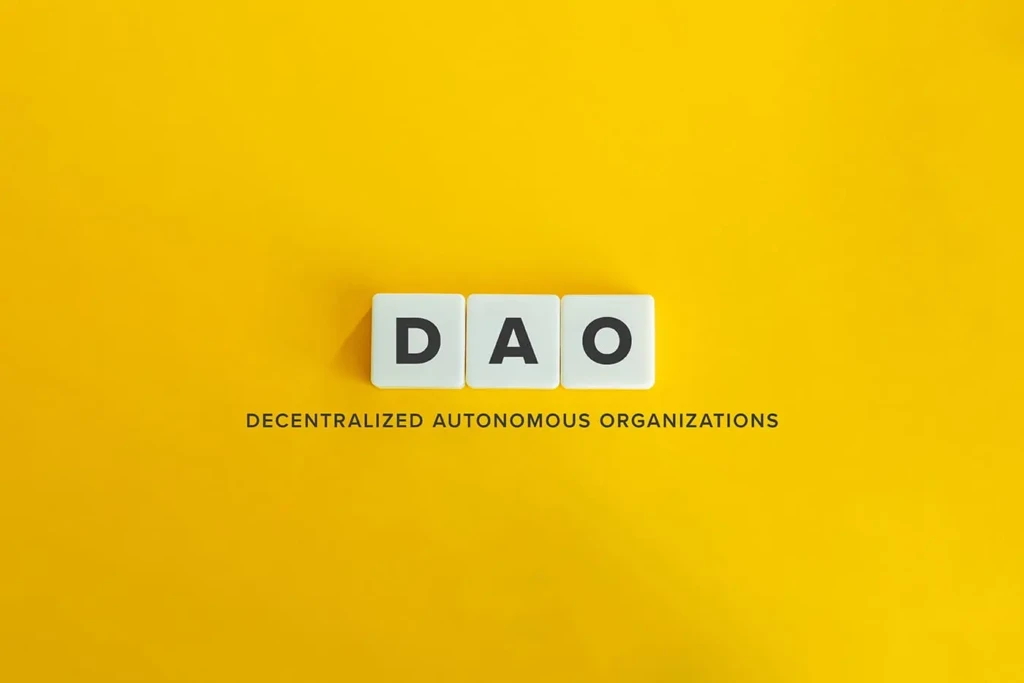What is a DAO?
What is a DAO? A decentralized autonomous organization is a blockchain-powered structure that allows communities to coordinate, govern, and make financial or operational decisions—without CEOs, boards, or centralized leadership. Instead, DAOs rely on smart contracts and token-based voting systems to function, turning collaboration into a transparent, automated process recorded entirely on the blockchain.
This model challenges centuries of corporate tradition and is increasingly being recognized by regulators, investors, and innovators as a new frontier in digital governance.
The Origins and Evolution of DAOs
The concept of DAOs rose to prominence in 2016 with The DAO, an Ethereum-based venture capital fund that raised over $150 million before suffering a $50 million hack. While the incident exposed serious vulnerabilities, it also catalyzed rapid advancements in blockchain security and governance models.
Today, more than 50,000 DAOs collectively manage over $24 billion in assets, spanning finance, real estate, social communities, and even experimental governance systems.
- MakerDAO oversees the Dai stablecoin, a keystone in decentralized finance (DeFi).
- Uniswap DAO governs one of the largest decentralized exchanges, where UNI token holders vote on fees and upgrades.
- ConstitutionDAO famously raised $47 million in a matter of days to bid on a rare copy of the U.S. Constitution.
As Ethereum co-founder Vitalik Buterin put it, “DAOs are the first truly borderless organizations.”
How DAOs Work
DAOs operate on three core pillars of blockchain technology:
Blockchain as the Foundation
Every vote, transaction, and proposal is recorded on-chain. This ensures transparency and immutable record-keeping.
Smart Contracts as the Rulebook
These are lines of code that automatically execute governance decisions. For example, MakerDAO’s contracts adjust the supply of Dai to maintain its U.S. dollar peg.
Tokenomics and Incentives
Tokens represent voting power. Members use them to propose, deliberate, and approve initiatives. However, this raises risks of plutocracy—where wealth concentration translates into governance dominance.
DAOs vs. Traditional Organizations
Unlike corporations with CEOs, boards, and rigid hierarchies, DAOs distribute governance among their members.
| Aspect | Traditional Companies | DAOs |
|---|---|---|
| Decision-Making | Centralized, hierarchical | Token-based community votes |
| Transparency | Limited disclosures | Fully auditable on blockchain |
| Ownership | Shares or equity | Governance tokens |
| Jurisdiction | National laws | Global, often legally ambiguous |
This radical departure from centralized structures explains both the excitement—and regulatory scrutiny—surrounding DAOs.
Real-World DAO Applications
DAOs are not theoretical. They are already reshaping industries:
- Finance: MakerDAO, Aave, and Curve coordinate billions in DeFi markets.
- Social: Friends With Benefits DAO creates token-gated digital communities.
- Cultural: PleasrDAO pools funds to acquire iconic digital assets like NFTs.
- Investment: MetaCartel Ventures funds early-stage Web3 projects through democratic voting.
Even governments are paying attention: Wyoming became the first U.S. state to legally recognize DAOs in 2021, granting them limited liability company (LLC) status.
Key Challenges Facing DAOs
Despite their promise, DAOs face significant hurdles:
- Legal Ambiguity: Few jurisdictions provide clarity. Wyoming and Utah are rare exceptions.
- Security Risks: Smart contract exploits, like the 2016 DAO hack, remain a constant threat.
- Governance Scalability: Low voter turnout often leaves decisions in the hands of a minority.
- Centralization by Wealth: Token hoarding can tilt governance power towards whales.
According to CoinTelegraph, only about 25% of eligible DAO members regularly participate in governance—highlighting the risk of governance fatigue.
The Future of DAOs
Emerging innovations are addressing current limitations:
- Quadratic Voting to reduce token concentration dominance.
- Reputation-based systems to weigh participation by merit, not wealth.
- Soulbound tokens to tie governance to verified identities.
- Cross-chain DAOs enabling collaboration across multiple blockchains.
If successfully integrated, DAOs could evolve into hybrid governance structures blending decentralized blockchain systems with traditional corporate frameworks.
Getting Started: How to Join a DAO
- Research active DAOs on platforms like Snapshot or Tally.
- Choose a blockchain network (Ethereum, Solana, or others).
- Get a crypto wallet like MetaMask and acquire the DAO’s governance tokens.
- Participate in governance, starting with small votes and gradually contributing to larger initiatives.
- Engage in community discussions on Discord or forums to build reputation and influence.
Conclusion: The Next Era of Governance
What is a DAO? At its core, it is a bold experiment in rethinking how humans coordinate, make decisions, and share resources on a global scale. While DAOs face pressing issues—security vulnerabilities, regulatory uncertainty, and participation gaps—they also embody the promise of transparent, inclusive, and borderless collaboration.
If legal frameworks mature and governance models evolve, DAOs could reshape not only crypto ecosystems but also the future of corporations, non-profits, and even governments. In many ways, DAOs may become the operating system for collective action in the digital age.
FAQ: What is a DAO?
What is a DAO in simple terms?
A DAO is a blockchain-based community that makes decisions collectively using smart contracts and token-based voting.
How does a DAO differ from a traditional company?
Unlike corporations with CEOs or boards, DAOs are governed by members through transparent on-chain voting.
What is the technology behind DAOs?
DAOs rely on blockchain for transparency, smart contracts for automation, and tokens for governance participation.
What are some examples of successful DAOs?
MakerDAO, Uniswap DAO, and PleasrDAO are leading examples managing billions in assets or cultural assets like NFTs.
What challenges do DAOs face today?
The main issues include legal uncertainty, smart contract vulnerabilities, and voter apathy.
What is the future of DAOs?
DAOs are likely to integrate reputation-based voting, legal recognition, and multi-chain collaboration, expanding beyond crypto into mainstream governance.
How can I get involved in a DAO?
You can join by researching projects, acquiring governance tokens, and participating in community discussions and votes.

